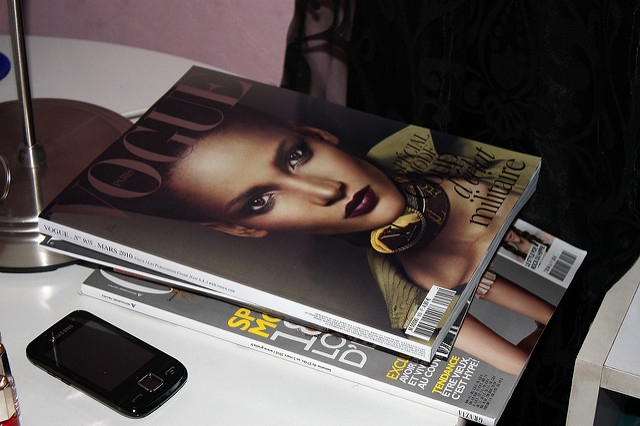Fashion Wars! David Mitchell’s Defence of Fashion Bloggers
On Sunday, in the Guardian, comedian David Mitchell unleashed a brutal attack on Vogue staff. Mitchell, an unlikely, though hilarious, fashion commentator, happily admits in his article that “…being fashionable doesn’t matter”. However, whilst he may not be enamoured with fashion or the fashion industry as a whole, he is far less impressed with the staff at Vogue, whom he called “old bullies” in response to their opinions regarding fashion bloggers. And, to be fair, he has a point.

Mitchell dubs himself a “rational comedian” and is well known for his humorous expositions of irrational thought wherever he finds it – be that religion, grammar, or politics. And it is this hunt for irrationality that drew Mitchell into world of fashion.
Following Milan Fashion Week, Vogue.com wrote an article summarising the event, and, in the process, revealed their opinions regarding so-called fashion bloggers, influencers, and street-style stars.
Sally Singer, Vogue’s creative director, threw the first stone when she wrote: “Note to bloggers who change head-to-toe, paid-to-wear outfits every hour: Please stop. Find another business. You are heralding the death of style.” Others called bloggers “pathetic”, “desperate”, and “pretty embarrassing”. This led Mitchell claim that purporting to be on the very cutting edge of style whilst denouncing incredibly popular (and therefore fashionable) new voices in fashion reveals a certain level of irony and hypocrisy.
So why would the fashion publishing elite indulge in this? Mitchell, who called Milan Fashion Week “a vacuous jamboree consecrated to the monetisation of narcissism”, believes it is because the popularity of bloggers is a direct financial threat to traditional fashion publishers. There is, of course, some truth in this. But not all “traditional” voices seem to be so worried.
Some of these voices – including Susie Bubble and Chiara Ferragni have embraced blogging, social media, and other new digital platforms to great success. Chiara Ferragni even surpassed her status as a blogger and has a very successful shoe line of her own.
These platforms allow those who use them to present a “street” rather than “elite” perspective, tell real stories, and showcase other aspects of their lives (where they go on holiday, what they have for breakfast, etc.).
Let's not forget that some traditional fashion editors also managed to use blogging to their (and their media businesses') advantage, such as Giovana Englebert, Anna Dello Russo, and (my personal favourite) Miroslava Duma.
Consumers respond to this approach, and feel that they can really relate to bloggers and engage with them on an emotional level. That means that fashion blogging is not going anywhere any time soon, no matter how much certain “traditional” voices make it clear how much they dislike them. So, rather than fight bloggers, traditional magazines need to work out a new approach.
Unless magazines can find a way to tell real stories, produce more juicy content, reduce the amount of intrusive advertising they contain, and reconnect with their audiences, they may be on their way out.
What do you think? Are bloggers a threat to traditional fashion commentary? Or is there some way that magazines can work with bloggers?
Email me your thoughts.
